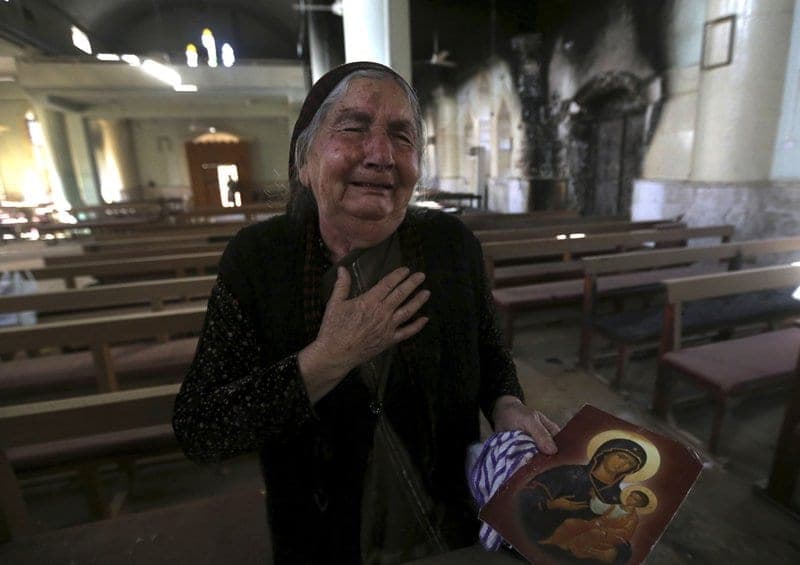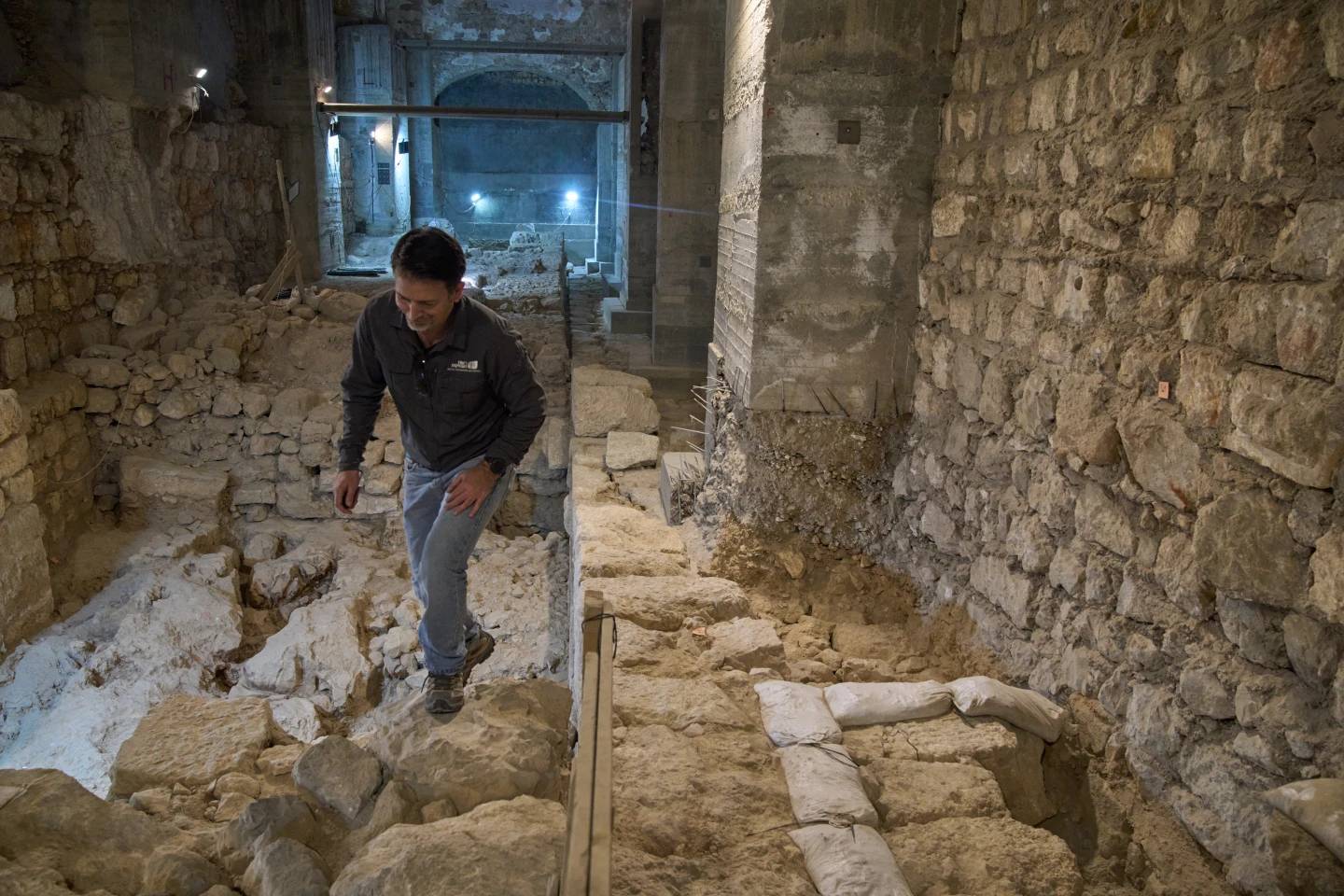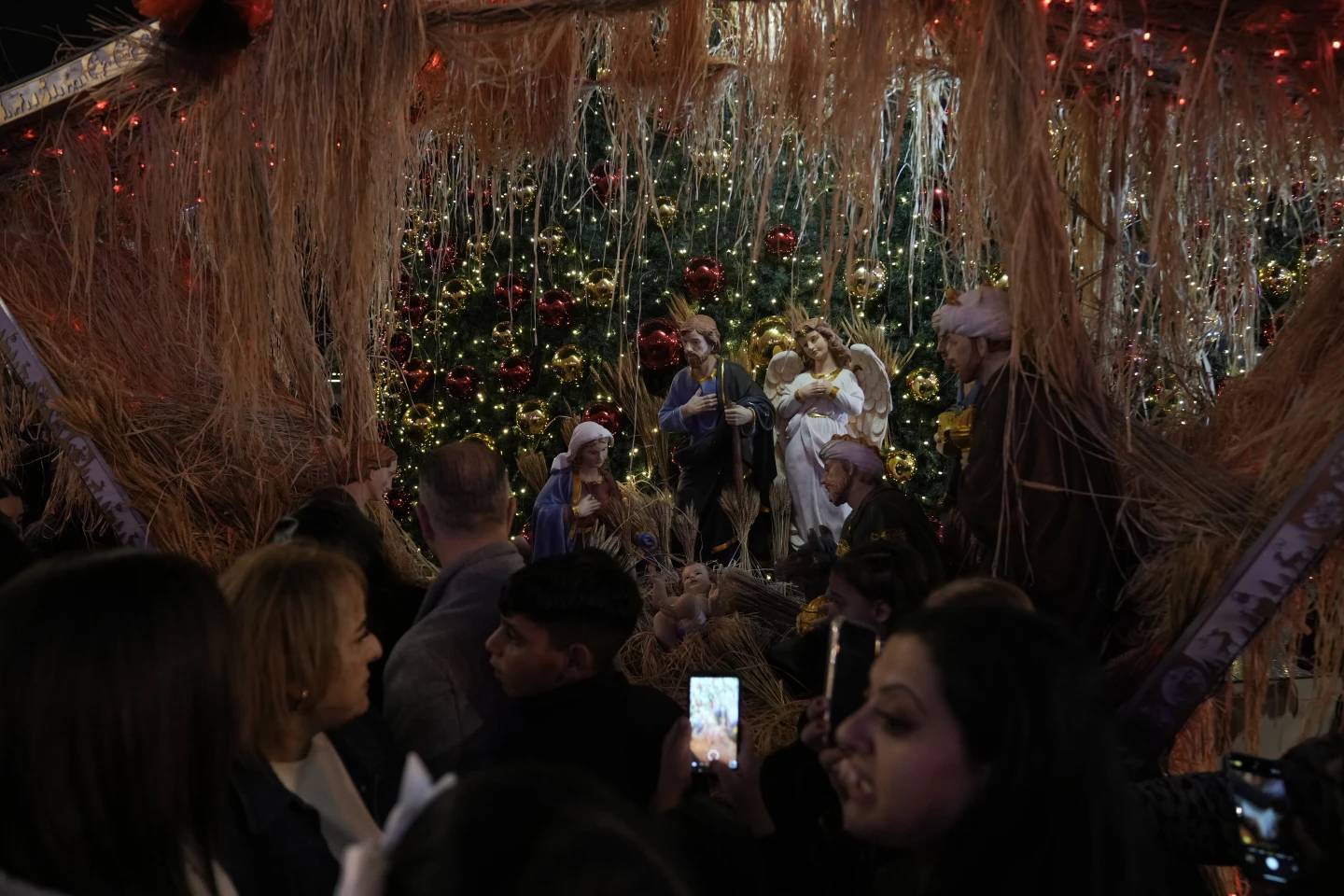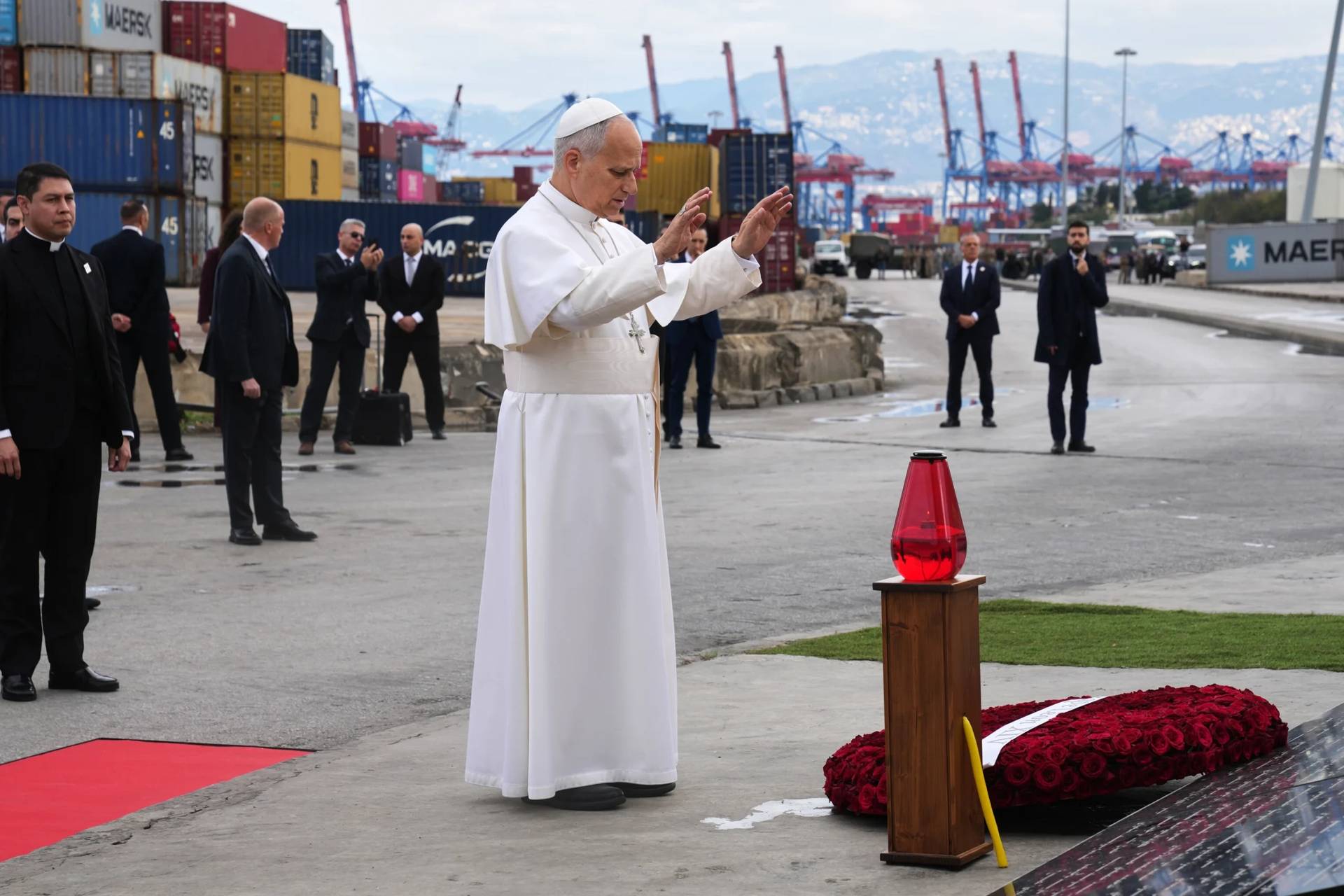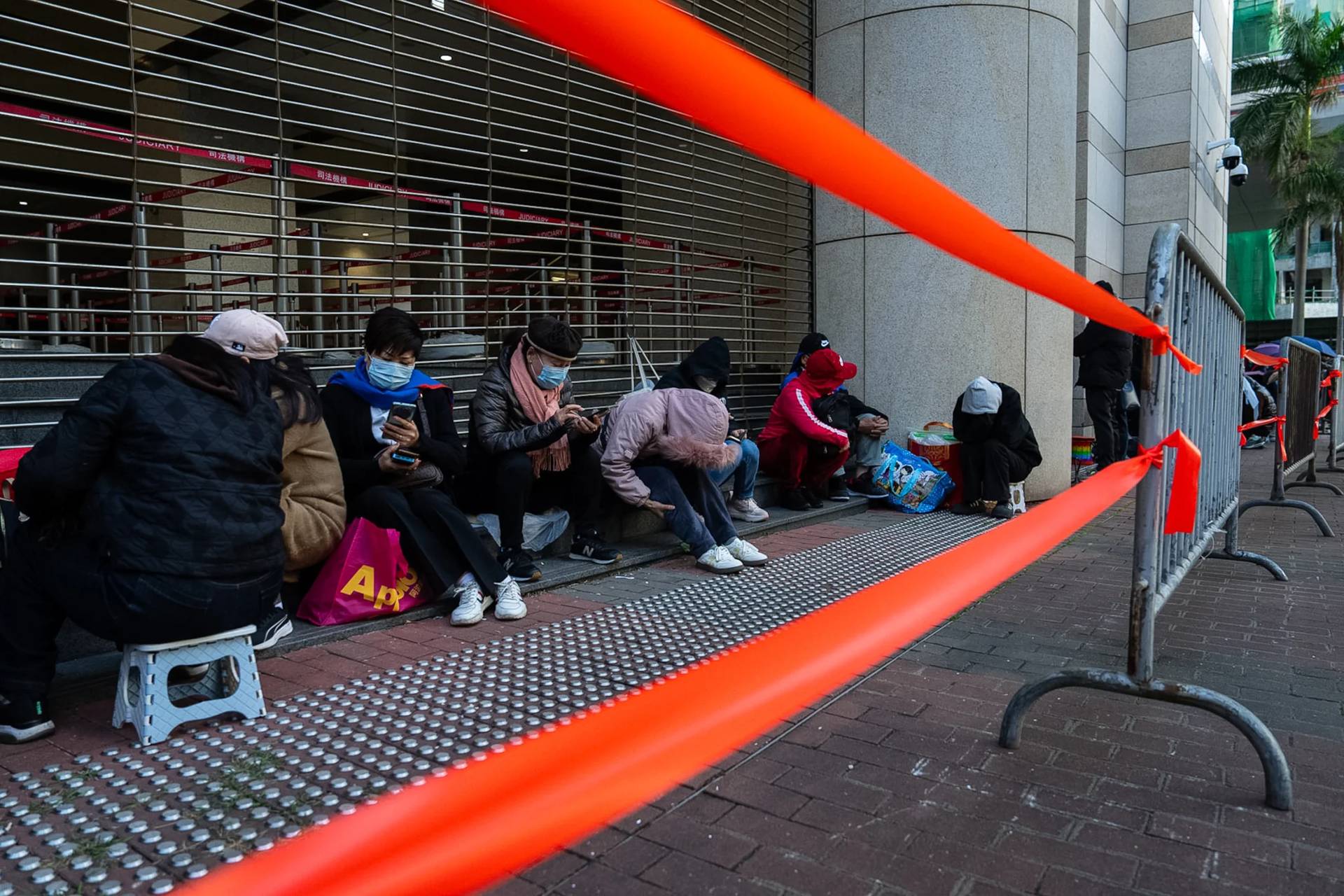LEICESTER, United Kingdom – England’s top prelate has called for more to be done to rebuild the towns and villages of Iraq’s Nineveh plains after they were destroyed by the Islamic State group.
The region is the heartland of Christianity in the country, and the Christian community was forced to flee after the Islamic State group took over the area in 2014.
After the Islamist militants were pushed out of the region, efforts have been made to move Christian families back into their homes.
However, from a pre-2003 total of 1.5 million, Iraq’s Christian population has declined to fewer than 150,000. Although most have fled abroad, there are hopes that those who sought refuge in Iraq’s relatively peaceful Kurdish regions will be able to return to Nineveh.
“The need to reconstruct towns and villages [in Iraq’s Nineveh Plains] destroyed by Daesh [the name commonly used by Christians for the Islamic State group] and rebuild trust in that region is pressing,” said Cardinal Vincent Nichols of Westminster on May 30.
“We are united in prayer and support for the Christians and other minorities in that region as they seek to rebuild their lives,” he said, noting the Christian presence in the area goes back nearly 2,000 years.
The cardinal’s appeal was made following last week’s visit to the UK by Archbishop Bashar Warda of Erbil, who met with the UK Foreign Secretary Jeremy Hunt.
Erbil is located in Iraqi Kurdistan, and Warda has hosted most of the internally displaced Christians from the Nineveh plains.
“Since my visit to Iraq in 2015, when Archbishop Warda hosted us and we visited numerous refugee camps across Erbil, the plight of persecuted Christians and other minorities in those ancient lands has been of particular concern,” Nichols said.
During the May 21 meeting with Hunt, the Chaldean archbishop appealed for the UK Government to provide direct aid to Christians and others who have suffered genocide in Iraq.
“Rebuilding infrastructure is urgently needed but the government in Iraq has said it has no money. They have told us ‘You will have to rely on your friends.’ But this surely should be the task of government,” Warda said later.
Although the Hungarian government has provided some direct aid, the Iraqi church has become dependent on organizations such as Aid to the Church in Need.
Hunt has recently become a strong advocate for persecuted Christians, and last December announced he would launch an independent review into the issue. The inquiry released its interim report earlier this month, with a final report due in June.
RELATED: UK government panel warns of ‘genocidal’ persecution against Christians
“The rise of religious extremism, civil wars and general violence in various countries, especially since early 2000, has caused a huge migration of Christians (and non-Christians) from the Middle East. It has also impacted Muslim-Christian relationships and compromised significantly the safety of Christians and other religious minority groups in the region,” the report said.
The interim report was more descriptive of the problem, while the final report will offer detailed recommendations for the UK government to help persecuted Christians.
Hunt’s advocacy for persecuted Christians could take on added significance when that report is released, since he has thrown his hat in the ring for the leadership race to replace Theresa May as prime minister after she steps down on June 9.
In the Nineveh plains, there are signs of hope. According to statistics from Aid to the Church in Need, nearly half of the families who fled in 2014 have returned. However, foreign investment and job opportunities for returnees are essential for the community.
“We are waiting and hoping that governments like that of the United Kingdom will step in and help us on this front,” Syriac Catholic Archbishop Petros Mouche of Mosul told the pontifical charity in April.
“The Church as a whole is sparing no effort to claim the rights of its people and to secure an area where we can live in dignity and peace,” he said.
“Church leaders do their best to instill confidence and hope in our people, but without forcing anyone to return, stay or be displaced. That decision each family must make for itself, the decision that guarantees its dignity, its future, especially the future of the children,” said Mouche.
Follow Charles Collins on Twitter: @CharlesinRome
Crux is dedicated to smart, wired and independent reporting on the Vatican and worldwide Catholic Church. That kind of reporting doesn’t come cheap, and we need your support. You can help Crux by giving a small amount monthly, or with a onetime gift. Please remember, Crux is a for-profit organization, so contributions are not tax-deductible.
